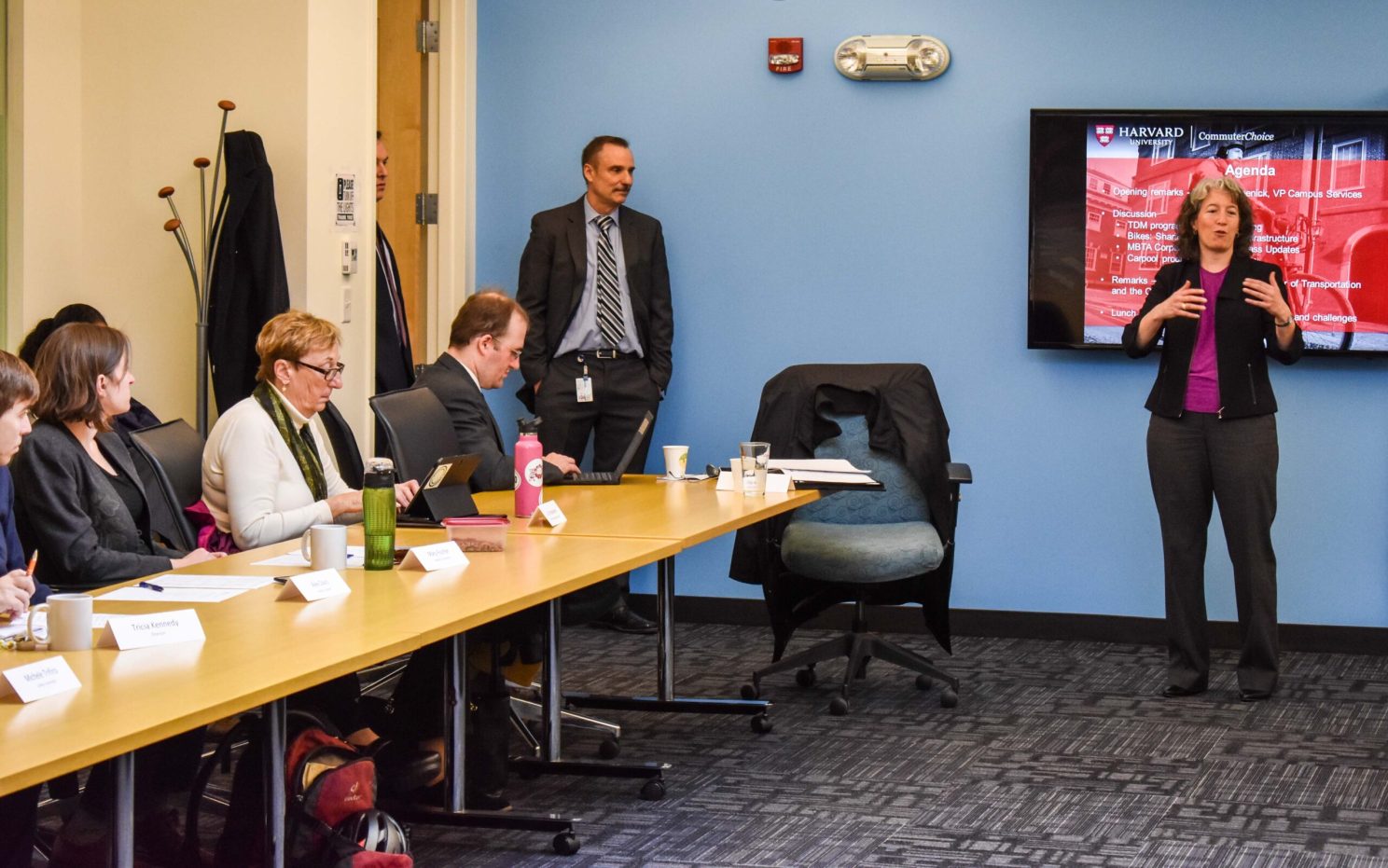Sustainable transportation experts descend on Harvard

Vice President for Campus Services Meredith Weenick offers keynote remarks at the 3rd Annual Transportation Sustainability Summit
From the newest trends in bike-sharing to figuring out the best ways to promote carpooling, the Sustainable Transportation Summit is proving to be an important resource for schools throughout the region. In what has become an annual gathering, Harvard’s CommuterChoice program recently hosted over 40 transportation and sustainability experts from 15 schools across Massachusetts and Vermont. The half-day, discussion style meeting, allowed for an exchange of ideas, best practices, success stories, and common challenges.
The one thing everyone agreed on is that the desire to expand sustainable transportation options is stronger than ever. Students, faculty, and staff are always looking for new, less expensive, and more environmentally sound ways of getting to and around their school. But one common challenge quickly emerged during the discussion, and that’s communication. “Most schools agreed that it can be difficult to continuously ensure people are being matched with the right program, especially when you’re on a very large campus,” explained Associate Director for CommuterChoice, TDM & Sustainability Ben Hammer. “So we all spent a great deal of time sharing best practices.”
It’s also clear that schools are taking different approaches when it comes to bike-sharing. For many years, companies like Hubway were the major players in the bike-sharing space. However, a number of businesses utilizing dockless bike-sharing models are now operating in municipalities and campuses in Massachusetts. In the dockless model, bikes don’t have to be returned to a station and can be left anywhere. GPS tracking allows users to locate the bikes and the wheels only unlock when a QR Code is provided. Several participating schools in Worcester, including Holy Cross, WPI and Clark University have opted for this approach. The group debated the merits of each business model with the discussion focusing in on cost, quality, and safety.
“This type of event helps us realize that we’re surrounded by resources and surrounded by folks doing similar work with many of the same challenges and constraints,” said Summit participant and Boston University transportation demand management and marketing manager Carl Larson.” “I’ve pinned the contact list of event attendees on my bulletin board and I fully expect to use it before next year’s summit.”





